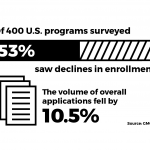
The Boston University Police Department charted three instances of suicidal behavior in the department’s crime logs last week, which BUPD Deputy Chief Robert Molloy said is not unusual — though it is on the higher end.
College campuses around the country see higher numbers of depressed and even suicidal students in the first few weeks of the school year, according to Molloy. At BU, the number of calls reporting a person expressing suicidal behavior varies from week to week, but the response process is typically the same.
“We have emotionally disturbed calls from time to time and sometimes we can get three in a week or sometimes just one,” Molloy said. “Sometimes we can go through long periods of times without getting any calls.”
When responding to these calls, Molloy said the department first checks to ensure the caller is physically OK. Students are then assessed by BU health professionals and taken to a hospital if necessary.
In order to help students cope with depressed and suicidal feelings, BU provides students with a variety of resources and services that can help them manage their emotions, said Assistant to the Dean of Students Katherine Cornetta.
Student Health Services offers students behavioral and mental health services that can help students who are experiencing mental health issues or having suicidal thoughts, Cornetta said.
For students who feel they need more support than what SHS can offer, Cornetta added, there are centers on campus, including the Center for Psychiatric Rehabilitation, that can provide counseling, therapy and other treatments for any mental health problems the student may have. If it’s beyond their breadth, SHS can refer students to external care providers.
In an effort to educate students and faculty on managing mental health issues, the SHS directs a program called Terriers Connect, Cornetta said. This program, along with a variety of student groups and organizations, works with affected students to help them manage their options and, ideally, get better.
“There has been more student awareness going on and student programming,” Cornetta said. “There is also a fair amount of student groups who are talking about issues surrounding suicide and mental behavioral health … It has been something that a lot of offices and student organizations are addressing on campus towards the last couple of years.”
Several students said they think suicide prevention is an important topic and that both the university and fellow students should do more to help students dealing with mental health issues.
Brianna Smoot, a College of Arts and Sciences freshman, said she thinks incoming freshmen should have to take a course similar to AlcoholEdu to learn about the options they have available to them if they begin having suicidal thoughts.
“[BU] should have a required interactive [course for freshmen] that gives information on signs of health issues, with different information on where to go for mental health resources, as well as talk groups for people who do feel like they are slipping,” Smoot said.
Anthony Biondo, a College of Engineering freshman, said he thinks leaders within the student community, like residence assistants, can be of assistance in helping students understand their options when it comes to seeking help.
“BU could have the RAs in each residence talk about suicide,” Biondo said, “and what to do if you or someone you know is having those thoughts.”
Anjali Balakrishna, a College of Communication sophomore, said she believes that all students should feel encouraged to take an active role in the well-being of fellow students and that there should be more advocacy from the university about SHS.
“[Suicide] prevention needs to be emphasized and supported,” Balakrishna said, “but it can only go on as long as [students] are willing to stand up and support those needing help, no matter how long the road to wellness or stability may be.”















Camila, that is a good investigation and very well writte. I am very proud of you.
What can you do to help . You are awesome and know you’ll give us an answer